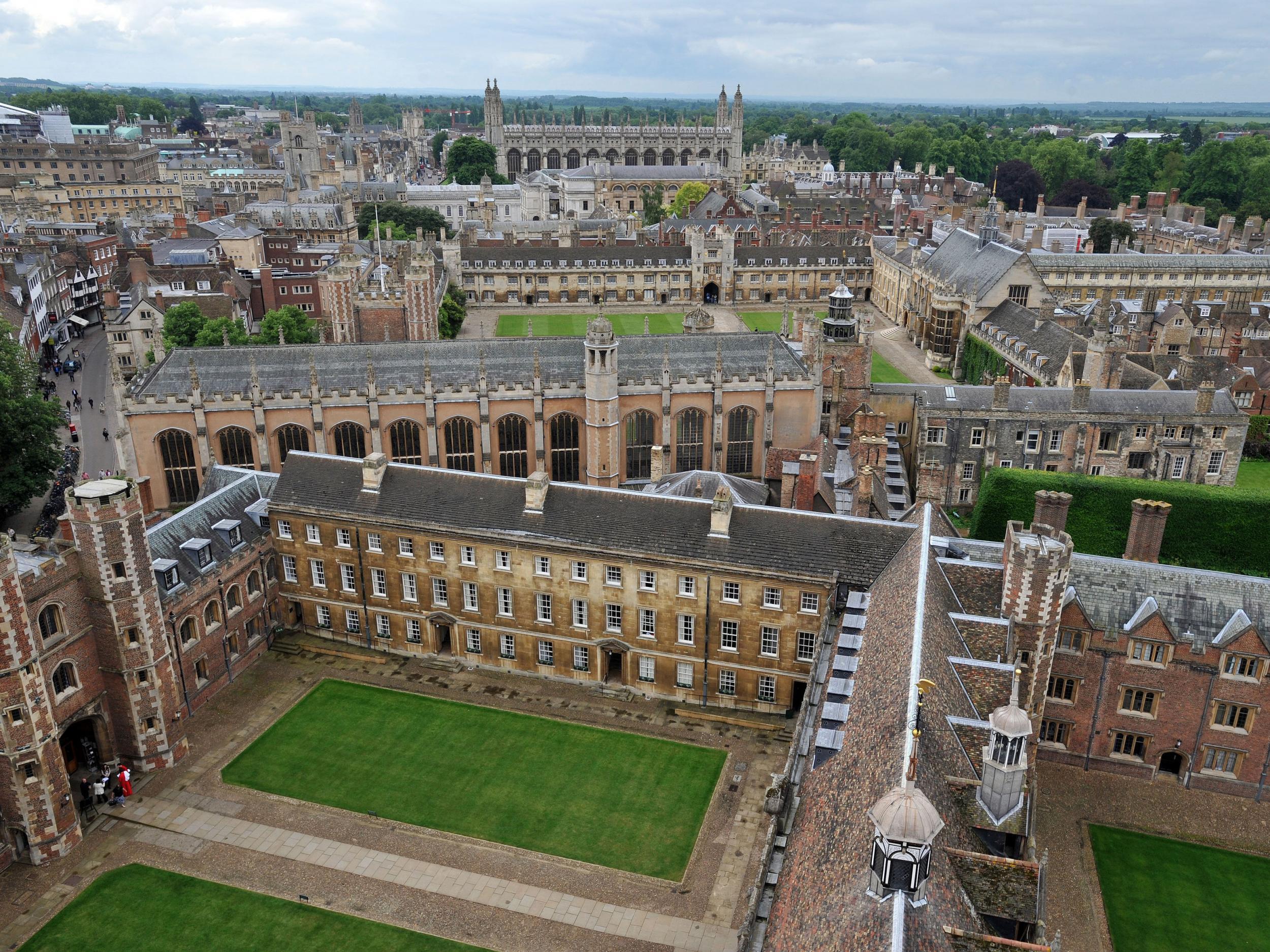Cambridge and Oxford among worst universities in UK for socio-economic equality, report reveals
‘We do not have an educational level playing field,’ says the vice chancellor of Anglia Ruskin University

Your support helps us to tell the story
From reproductive rights to climate change to Big Tech, The Independent is on the ground when the story is developing. Whether it's investigating the financials of Elon Musk's pro-Trump PAC or producing our latest documentary, 'The A Word', which shines a light on the American women fighting for reproductive rights, we know how important it is to parse out the facts from the messaging.
At such a critical moment in US history, we need reporters on the ground. Your donation allows us to keep sending journalists to speak to both sides of the story.
The Independent is trusted by Americans across the entire political spectrum. And unlike many other quality news outlets, we choose not to lock Americans out of our reporting and analysis with paywalls. We believe quality journalism should be available to everyone, paid for by those who can afford it.
Your support makes all the difference.Cambridge is the most unequal university in Britain for admitting students from different economic backgrounds, according to new rankings.
A report, published by the Higher Education Policy Institute (HEPI), ranked the University of Hull as the best performing institution for admitting a balanced intake of rich and poor students.
Some of the country’s most prestigious universities – such as St Andrew’s, Bristol, Durham and Aberdeen – were also placed in the bottom 10 of the table. Oxford was fourth worst.
The rankings are based on Participation of Local Areas (Polar) data – which divides neighbourhoods into five groups according to the proportion of young people making it to university.
The University of Hull takes almost exactly a fifth of its students from each group, said HEPI.
Nick Hillman, director of HEPI, said: “This analysis reveals which universities reflect wider society best, and those which have further to travel.”
He added that learning outcomes were better when students from diverse backgrounds studied alongside each other.
“On these sorts of issues, policymaking on schools can sometimes seem ahead of what goes on in the university sector,” Mr Hillman said.
The HEPI director added: “The best way to deliver fairer access to selective institutions is the same as the best way to deliver widening participation overall, which is to provide more places.”
Of the top 10 most unequal institutions, Russell Group universities accounted for seven places.
On widening participation among students, Iain Martin, Anglia Ruskin University vice chancellor and report author, said: “It remains that we do not have an educational level playing field.”
A University of Cambridge spokesman said: “Widening participation in higher education is a complex issue and we welcome different interpretations of the data.
“We would note, however, that Polar, the single measure upon which this analysis is based, takes no account of factors such as household income, access to education and socio-economic background, all of which have a profound bearing on a student’s likelihood of applying to university.”
Top 10 universities for class equality
1. Hull
2. Derby
3. Edge Hill
4. Chester
5. Plymouth College of Art
6. York St John
7. Leeds Beckett
8. Worcester
9. Anglia Ruskin
10. Cardiff Metropolitan
Bottom 10 universities for class equality
1. Cambridge
2. St Andrews
3. Bristol
4. Oxford
5. Aberdeen
6. Edinburgh
7. University College London
8. Durham
9. Robert Gordon University
10. London School of Economics and Political Science
Join our commenting forum
Join thought-provoking conversations, follow other Independent readers and see their replies
Comments